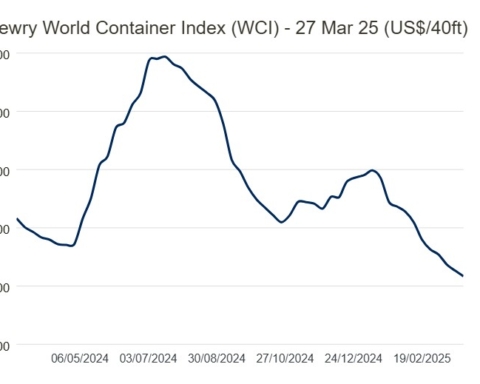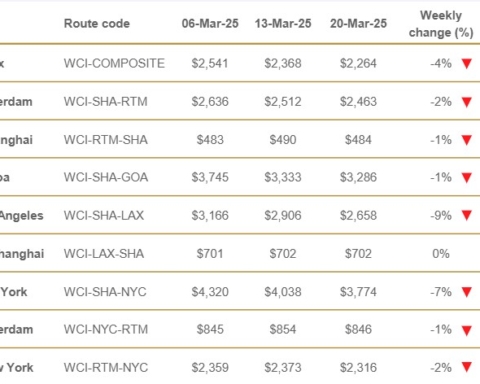The leading shipowners’ association, the World Shipping Council (WSC), is attacking the Federal Maritime Commission (FMC) head-on.
The accusation against the US shipping regulator is that it has gone beyond the powers it was attributed with by the Ocean Shipping Reform Act. This bipartisan reform passed in June 2022 allowed the FMC to launch investigations into container shipping companies’ business practices and implement enforcement measures, making it compulsory for carriers to report import, export and empty container tonnage every quarter.
At the centre of the dispute is a Notice of Proposed Rulemaking, published by the FMC in June last year, in which the US Authority had specified the cases and methods by which carriers could lawfully be prohibited from unreasonably reducing vessel space made available to the US market.
The proposal, revised in June of this year on the basis of a number of comments and complaints received from both US carriers and shippers, did not merely explain what is meant by ‘unreasonable conduct’, but sought to provide a non-exhaustive list of scenarios and cases of unreasonableness, including one in which clients are asked to pay rates so far above market values that the good faith of the carrier is called into question.
Not only that, in the updated version of the regulation presented a month ago (The supplemental notice of proposed rulemaking- SNPRM), carriers are required to submit documentation on export criteria, which in the previous version was optional. This would be a ‘written report’ detailing the practices and procedures followed by ocean carriers in export services from the US.
It was these two provisions that triggered the wrath of the World Shipping Council. According to the Shipowners’ Association, the regulation violates the Administrative Procedure Act (the US federal statute that governs how the US government administrative agencies may propose and establish regulations).
For the WSC, the FMC had gone beyond its powers when it decided to use tariff levels, and thus tariff setting policy, as a criterion for assessing to what extent the way big carriers behaved in negotiations for the sale of available cargo hold slots was reasonable or not.
Furthermore, the WSC states that there is no authority in the Shipping Act or OSRA22 that requires carriers to submit a detailed annual report on their export policies.
According to the FMC, the document should contain detailed information on tariff strategies, the services available, container supply strategies, and the effects of blank sailing on the quality of services on offer. From the big carriers’ standpoint, however, revealing intricate details of a company’s strategies to the general public risks putting the companies themselves at a significant competitive disadvantage.
In its Comment to SNPRM, Hapag Lloyd points out that in the global marketplace, companies need to be able to safeguard their trade secrets, market research and pricing structures in order to maintain their advantage over competitors. If any of this critical information were to become publicly accessible, the implications could, in short, be extremely serious for shipping companies, to the point – the German carrier goes on to say – of discouraging them from investing in strategic export initiatives.
MSC USA also points out that the FMC requires carriers not only to produce a documented export policy but also to follow a documented export policy. According to Aponte’s group, the Commission would therefore force shipping companies to bring their commercial activities into line with a precise operational plan. The carrier sees this as an unprecedented, and therefore illegal, interference in a company’s commercial activities by the Commission.
The WSC believes the commission should focus on the work that Congress instructed it to do in Section 7 of OSRA22, i.e. to define unreasonableness in the context of refusing to negotiate or bargain for the availability of slots on board ships.
The World Shipping Council also calls on the FMC to revise the definition of unreasonableness to provide greater clarity and regulatory certainty for carriers and shippers as the proposed definition is so vague that any conduct could be qualified as potentially unreasonable.
Translation by Giles Foster




